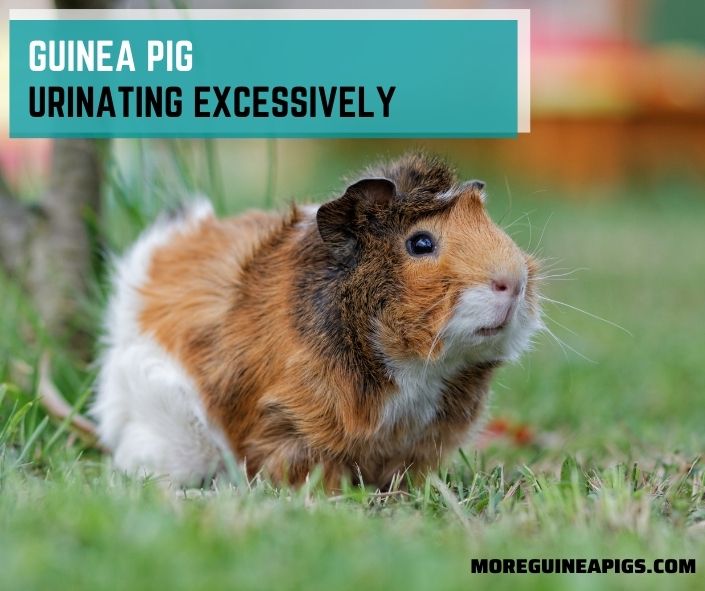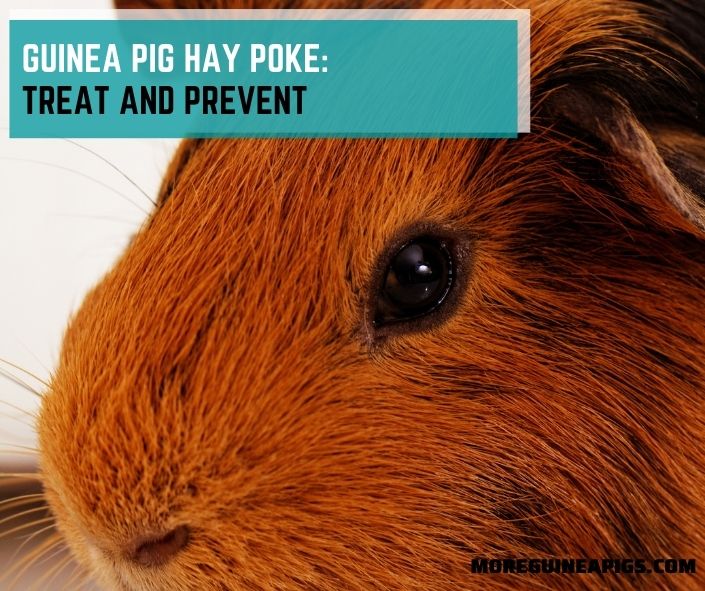Guinea Pig Urinating Excessively: Cause, Treatment, and Prevention
Urinating is, without a doubt, typical behavior for all animals. But what if your pet, namely your Guinea Pig, has an excessive amount of urination?
You are probably now concerned and confused about why your Guinea Pig urinates constantly, and you want to know what the reasons for this problem are so that you can know when to intervene and how to cure it if it occurs again in the future.
After reading this article, you will have a better understanding of the causes, treatments, and prevention of your pet’s frequent urination! Let’s get this party going, shall we?
How Often Do Guinea Pigs Pee?
When it comes to guinea pigs, urinating on a regular basis is completely natural. They have to go to the potty every 15 minutes and 96 times a day, seven days a week. They pee in a variety of locations within their cage.
Guinea pigs also consume significantly more water than they would typically do, which helps to explain the line above. In addition to the fact that they are continually eating and drinking to keep their digestive tract going, guinea pigs pee a lot.
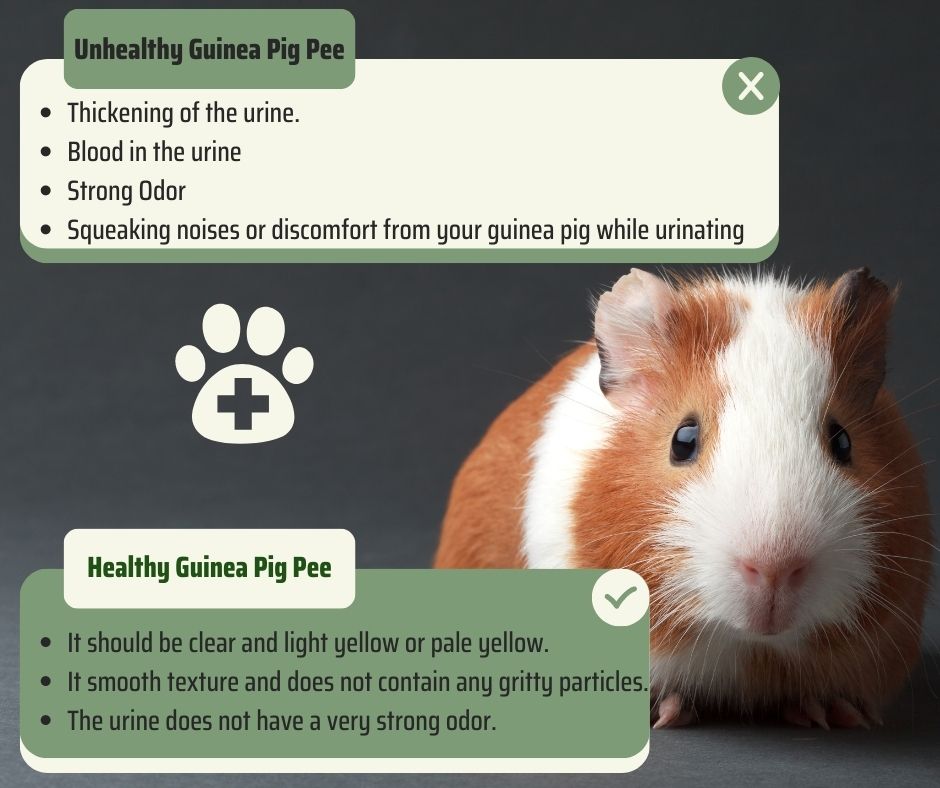
Signs Of Healthy Guinea Pig Pee
Urinating is an essential part of anyone, guinea pig or not, and it is important for owners to determine healthy urine from bad ones:
- It should be clear and light yellow or pale yellow. White and cloudy urine isn’t very unusual, but it’s still a sign that there are calcium compounds in your body
- Normal urine has a smooth texture and does not contain any gritty particles.
- The color of normal guinea pig urine will range from a pale yellow or clear to a variety of orange and brown hues, all the way up to a deep crimson.
- The urine does not have a very strong odor.
Signs Of Unhealthy Guinea Pig Pee
Owners must take consideration of the following signs of unhealthy guinea pig urine. If ever any of these signs occur, schedule an immediate vet checkup.
- Thickening of the urine.
- Blood in the urine
- Strong Odor
- Squeaking noises or discomfort from your guinea pig while urinating
Guinea Pig Urinating Excessively: Cause, Treatment, and Prevention
For Guinea pigs, urinating excessively means that each time they go is 15 minutes shorter, and they do so more than 100 times per day.
A guinea pig who pees more is always polyuric. Excessive urination may be a symptom that your Guinea Pig is suffering from polyuric and polydipsia, which are two conditions that can occur together.
Diabetes or insulinoma, dehydration, which can be harmful to the bladder, and kidney stones are all potential causes of this occurrence. Surgery and a change in diet may be required in order to resolve this problem.
A Sign Of Polyuria And Polydipsia
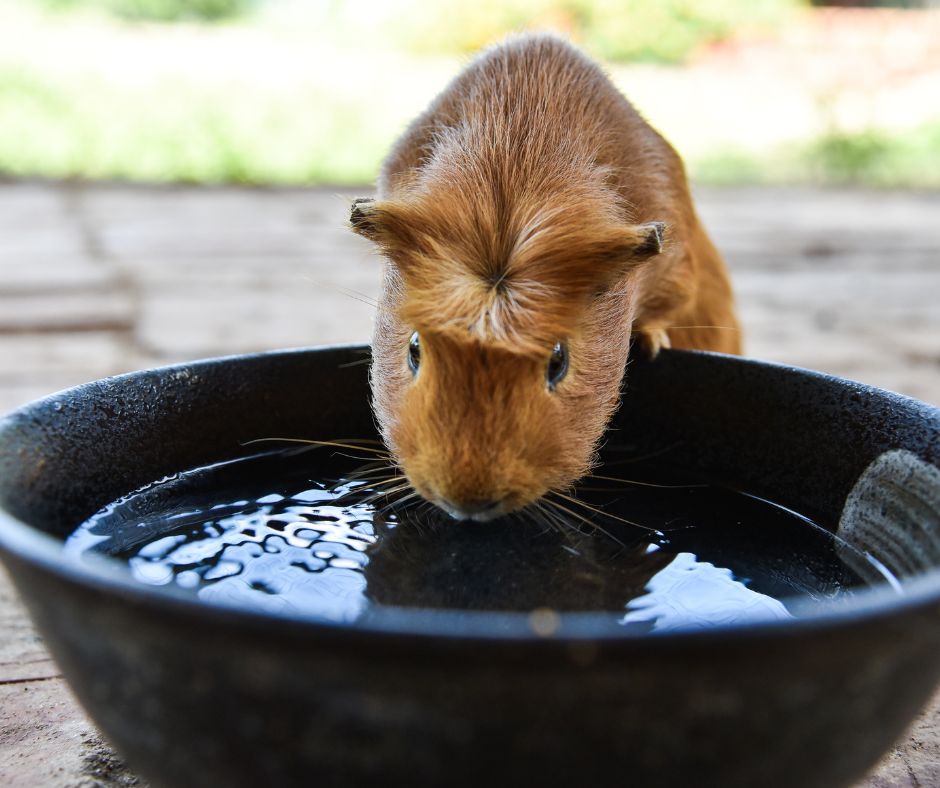
Urinating regularly and feeling thirsty all of the time, as well as abnormal weight loss are the two signs of this condition.
Here is a brief explanation of what polyuria and polydipsia are, and why they occur.
Polydipsia is a medical term that refers to the sensation of being extremely thirsty. Polydipsia is frequently associated with bladder disorders that cause you or your guinea pig to urinate a lot, such as cystitis.
This can cause your guinea pig to feel the need to replace the fluids lost through urination on a regular basis. Polyuria is excess volume of urine.
Causes Polyuria/Polydipsia In Guinea Pigs?
Excessive urinating is an effect of excessive drinking or it could be the other way around, depending on the cause, which could be an effect of kidney stones or other bladder or kidney infections.
There are many reasons for excessive urination, including
● Diabetes and insulinoma (a tumor of the pancreas).
● Renal insufficiency. A disease of the liver (hepatitis).
● There are behavioral issues.
However, incontinence in the form of bladder stones or bacterial infections, as well as spraying in territorial/behavioral displays, is not always a sign of increased urine production.
Polyuria may develop as a result of psychogenic polydipsia. Only after all other possible causes of polydipsia and polyuria have been eliminated can the condition be considered a cause of these conditions.
When eating becomes too uncomfortable for a guinea pig with dental illness, it may try to compensate by drinking excessive amounts of water.
This might lead to an increase in the amount of urine the guinea pig excretes. Their condition will deteriorate and they’ll seem unpleasant as a result.
What Happens If a Guinea Pig Urinating Excessively?
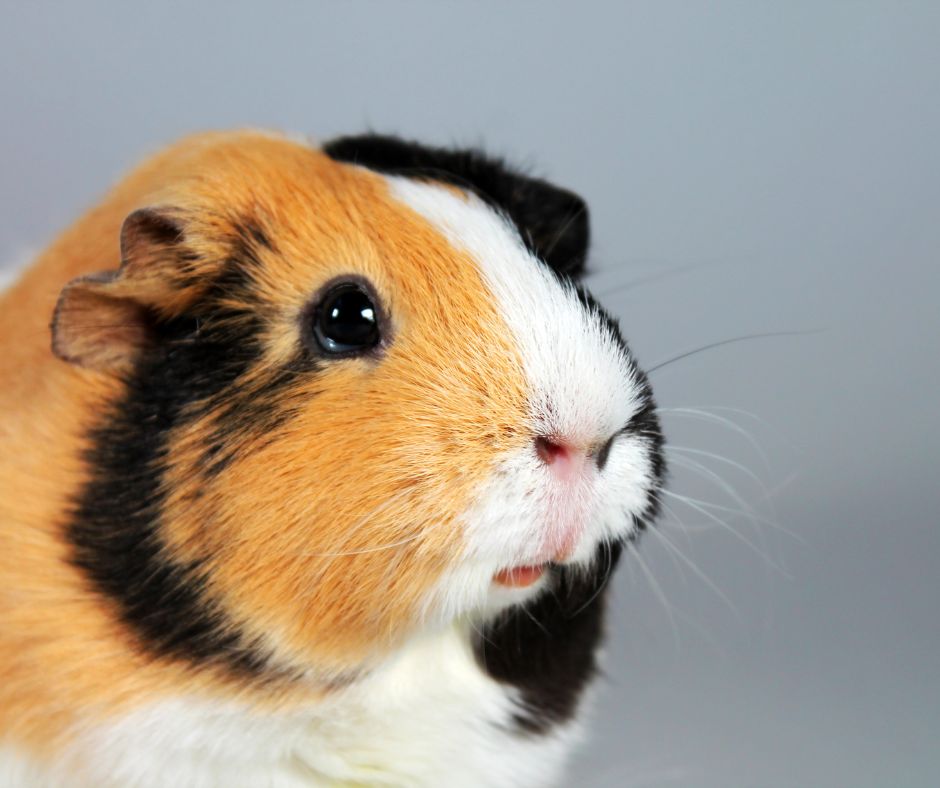
Excessive urination occurs can be a sign of infection present in their bodies and if left untreated the guinea pigs could suffer or worse, die.
This could make huge discomfort for the piggies if it is a specific underlying issue such as kidney stone or kidney infection. This could make them faint or suddenly go into a coma, which is dangerous for their health as it could result in their death.
How Do Your Vet Diagnose Polyuria/Polydipsia
There are numerous potential causes of polyuria and polydipsia, and therefore, your veterinarian will need to properly analyze the clinical signs and perform a number of diagnostic tests in order to narrow down the source of the problem.
Among the most typical tests are blood testing and urinalysis, which will check kidney function, liver function, and the presence of elevated blood glucose levels, which are common in diabetic patients.
If samples are sent to an external laboratory, results are usually returned within a few days if the procedure is completed on a single day in the hospital.
If it is thought that bladder or kidney stones are present, radiography or ultrasonography may also be required for confirmation. A day in the hospital and sedation are normally required for this procedure.
How To Treat Polyuria/Polydipsia
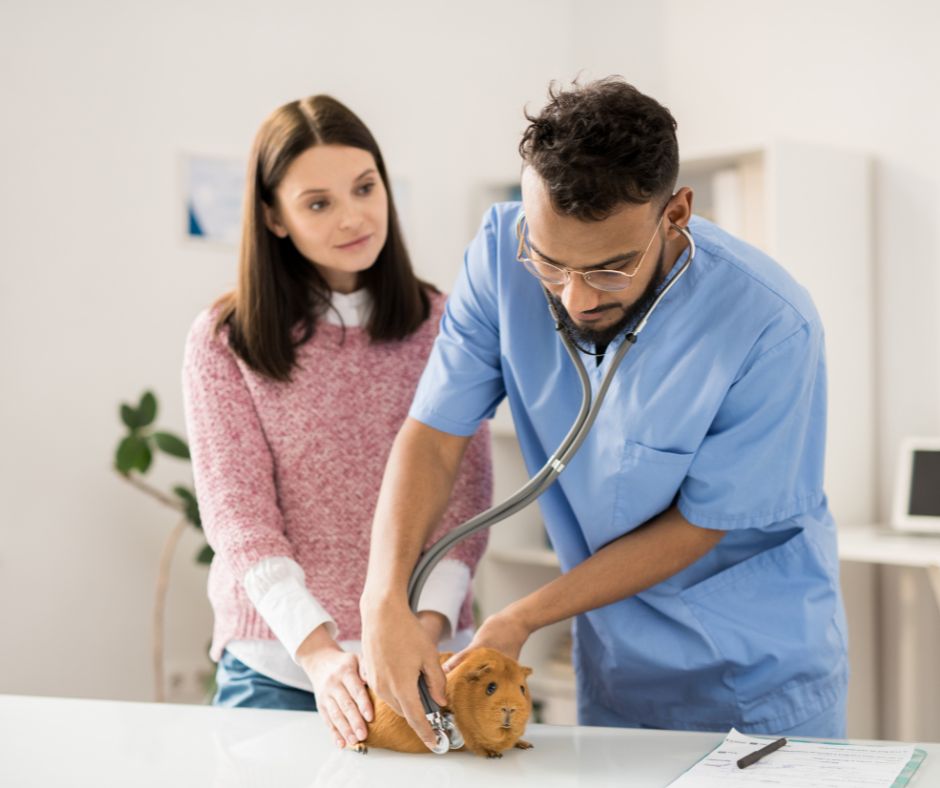
The therapy of polyuria and polydipsia is dependent on the underlying reason.
Guinea pigs with psychogenic polydipsia and polyuria will need to have their living environment thoroughly examined, and a medical examination will be undertaken to discover the source of the condition and the best course of therapy.
The solutions to each problem will have to be tailored to the specific situation.
When it comes to diabetes, it’s critical to tackle the underlying problem, which may entail losing weight. Surgery and a change in diet may be required in the case of bladder stones.
It is possible to treat polyuria or polydipsia by including certain moisture-rich meals each day, such as cucumber pieces, celery, and more if you can get your hands on them.
If they aren’t used to these foods, introduce them gradually in modest amounts to avoid upsetting their stomachs while continuing to provide plenty of hay.
But have your guinea pigs still checked up by the vet as they know best what to do. If the case is severe, antibiotics will be prescribed, but if the guinea pigs don’t seem to get better after 3 weeks of antibiotics, surgery may be needed.
They also need additional testing to establish if the illness is reversible in the case of renal and liver damage.
How Can Polyuria/Polydipsia Be Prevented?
Make sure your guinea pig is happy and healthy to help prevent the spread of sickness that can cause polyuria and polydipsia. Safe, secure, and stress-free conditions are essential.
Make sure the guinea pig has a safe place to live, as well as enough area to run around and behave normally. Ensure that the guinea pig’s water bowl is large enough to supply at least the daily water requirement and that the water is constantly clean and fresh.
Monitor what guinea pigs eat to avoid weight gain or the formation of kidney or bladder stones. Create an inviting environment for your pet by providing hiding spots, nesting materials, toys, chewable wood, and a variety of plants to explore.
Make sure there aren’t too many guinea pigs living in a small space, they may be sociable but having too many guinea pigs might cause tension and spread disease.
A good way to prevent territorial violence is to keep the guinea pig away from other animals that aren’t neutered or of the same sex.
Having your guinea pig examined by a veterinarian at least once a year is the best way to prevent disease.
At the first sign of any aberrant signs such as a lack of appetite, changes in drinking or urinating, activity level, hair loss, changes in the appearance of the hair coat, poo soiling and flystrike, among other things, visit your veterinarian immediately for treatment.
Oasis Guinea Pig Pure C Vita E-Z Mist Supplement, 2 oz
In Short
Now that you understand the causes, treatment, and prevention of excessive guinea pig peeing, take action as soon as you notice any signs of it. If you follow all of these suggestions, you and your partner will have fewer issues with pee in the future.
I hope you found this article helpful. You got this!
